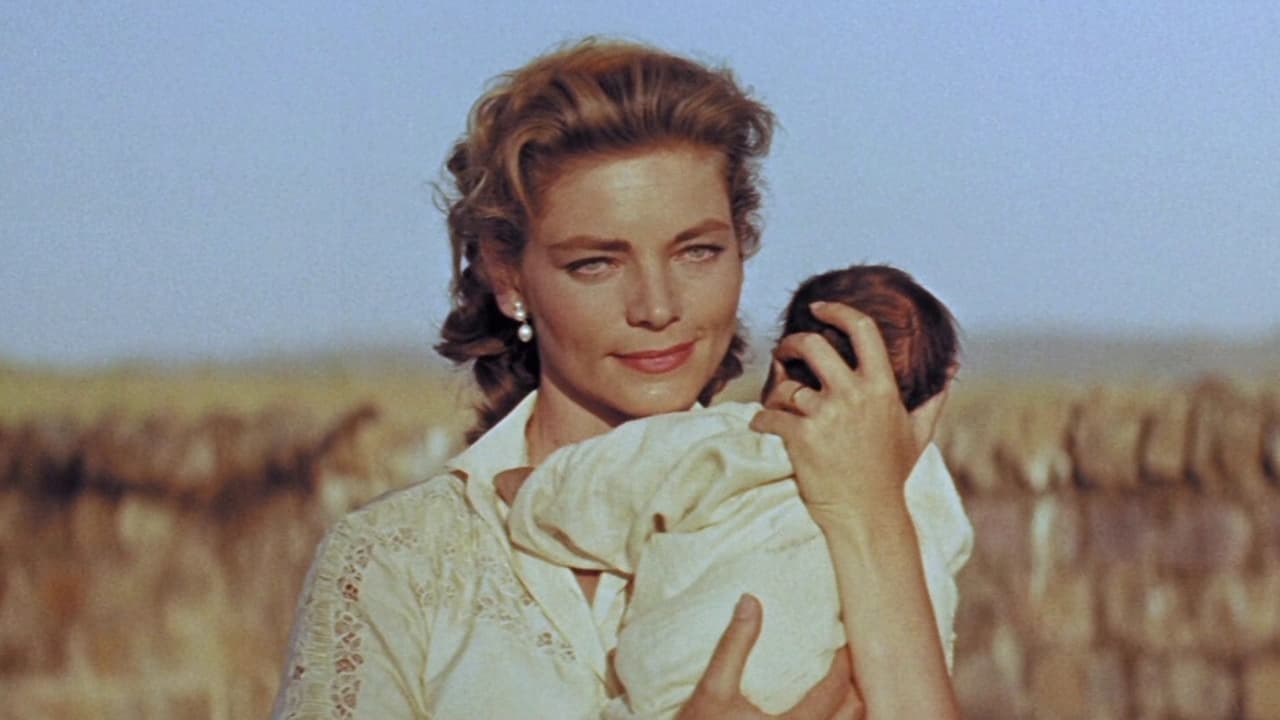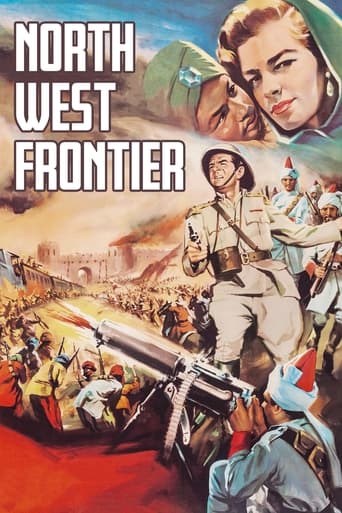Titreenp
SERIOUSLY. This is what the crap Hollywood still puts out?
Buffronioc
One of the wrost movies I have ever seen
Taraparain
Tells a fascinating and unsettling true story, and does so well, without pretending to have all the answers.
Edwin
The storyline feels a little thin and moth-eaten in parts but this sequel is plenty of fun.
Adam Peters
(79%) The always dependable Kenneth More stars this this Indian set action adventure shot in vibrant technicolor that really goes to prove that old films can be just as entertainingly watchable as any of the stuff we get these days. This can be easily compared to the brilliant Dark of the sun, although it is a little more family friendly, much more of a matinée Saturday afternoon crowd-pleaser than a hard-edged, hairy-backed armchair- gripper. Even though this is good popcorn fun, it still has a strong political theme running through involving the beginning of the end of British rule. The support cast is strong including Lauren Bacall and the always good Herbert Lom. So it's well made, entertaining, well cast, fun, and well worth a look. What more do you need?
l_rawjalaurence
J. Lee Thompson's adventure (retitled FLAME OVER India) is a dramatic tale of an hazardous train journey to take Indian Prince Kishan (Govind Raja Ross) out of the clutch of Muslim rebels and into safety. The passengers comprise a diverse group - the brave soldier Captain Scott (Kenneth More), the feisty doctor's wife (Lauren Bacall), the impassive governor's spouse (Ursula Jeans), a British bureaucrat (Wilfrid Hyde White), an arms-dealer (Eugene Deckers) and a Dutch journalist (Herbert Lom) who turns out to be a saboteur in disguise.Thrillingly photographed by Geoffrey Unsworth in India, NORTH-WEST PASSAGE contains some spectacular sequences as the beaten-up old train plows across the Indian landscape under Gupta's (I. S. Johar's) control. Frequently attacked by Muslim rebels, who are seen galloping towards the train on horseback, the passengers manage to repel them with a combination of luck and sheer courage. The film does contain its fair share of stereotypes: Hyde-White's Bridie is suave yet naive; Jeans does a fair job of sustaining her stiff upper lip in the face of adversity; while Bacall shows a commendable disdain for British authority (as an American, she is accustomed to having her own way).Yet the film is a fascinating product of its time, as it tries to transmit a liberal message at a time when the British Empire was in the process of breaking up. More's Captain Scott is both brave yet fair (it is no coincidence that his name should recall that of the intrepid polar explorer, immortalized in SCOTT OF THE ANTARCTIC (1948)), and tries his best to look after the Prince. While Lom's Van Leyden possesses violent instincts, he continually castigates the British for their desire to divide and rule: what is evident from the Governor's wife's behavior, both towards the Prince and to a little Indian baby they find on the way, is that she is not interested in power, but rather trying to help people in distress. Likewise Bacall makes every effort to look after the Prince, as well as helping Scott out when all seems lost. Whereas the British are still in power - the action takes place in 1905, some forty-three years before India gained independence - they are more than willing to share it, and thereby ensure that everyone is entitled to equal treatment under the law. Such policies were also pursued at the end of the Fifties (when the film was released) as the British oversaw a series of peaceful transitions to independent government in both Africa and Asia.
towton2
This is certainly not a pro-British film as it is the American (Lauren Bacall) who is the real heroine. Kenneth More is marvellous as British army Captain and Herbert Lom brilliant as the 'baddy' in the story but my favourite character must be Gupta,the engine driver,played by the Pakistani born actor I S Johar,who really impresses me with his loyalty to the Crown and his passengers on his beloved 'Victoria' steam engine.Mr Johar's acting in this part deserved an award and actually brought a tear to my eye during the film more than once. The whole film is first rate and an insight into the latter days of the Raj which everyone can watch and become involved.I can honestly advise anyone who has not seen it that they have missed a treat.Next time it is on TV watch it.
Robert J. Maxwell
I think I enjoyed this a bit more when I saw it years ago. Now that I'm so terribly sophisticated, I notice the clichés leaping out at me, fangs bared. Will the train make it, slowly creeping along the rickety bridge? Will the bus ("The Wayward Bus")? Will the car ("Murder by Death")? Will the explosive-laden truck ("Sorcerer II," "The Wages of Fear")? But, what the heck. This is a headlong adventure through the deserts and mountains of North West India in 1905. Everything shouts at you and ends in an exclamation point. The acting is outrageous. Even the fastidious Wilfred Hyde-White is outrageously fastidious. The principal heavy, Herbert Lom, sweats like a pig, an animal that he, as a Muslim, hates.There is an attempt on the part of the writers to inject some serious matters into the story. A boy of five is the surviving Prince of India, presumably a Hindu, while the villains are a radical Muslim sect. "Not all Muslims" support the bloody rebellion, as one character remarks. And the British colonials talk about how their presence is needed to "keep order" while all about them thousands of Indians are slaughtering each other. At the end, the young Prince gives a present to the hero, Kenneth More, but comment ruefully that someday he will have to fight the Brits. Largely because of Ghandi, the Brits, of course, eventually did leave India to its own devices. At the time, it didn't lead to an improvement since the Hindus and Moslems immediately went to war and finally split into two or three independent nations.This hardly matters to the colorful story of a handful of disparate men, women, and children trying to survive a three-hundred mile journey through a hostile land on a dilapidated train with one coal car and one coach. It's a generic "journey" movie that we've all seen before -- in "Stagecoach" and elsewhere, but it's a lot of fun. I love those old narrow-gauge Indian trains with their diminutive piping whistles.Do they get to the end of their journey successfully and (mostly) in one piece? Two old puff-puffs pulling my extremities in opposite directions couldn't get me to spill the beans.

